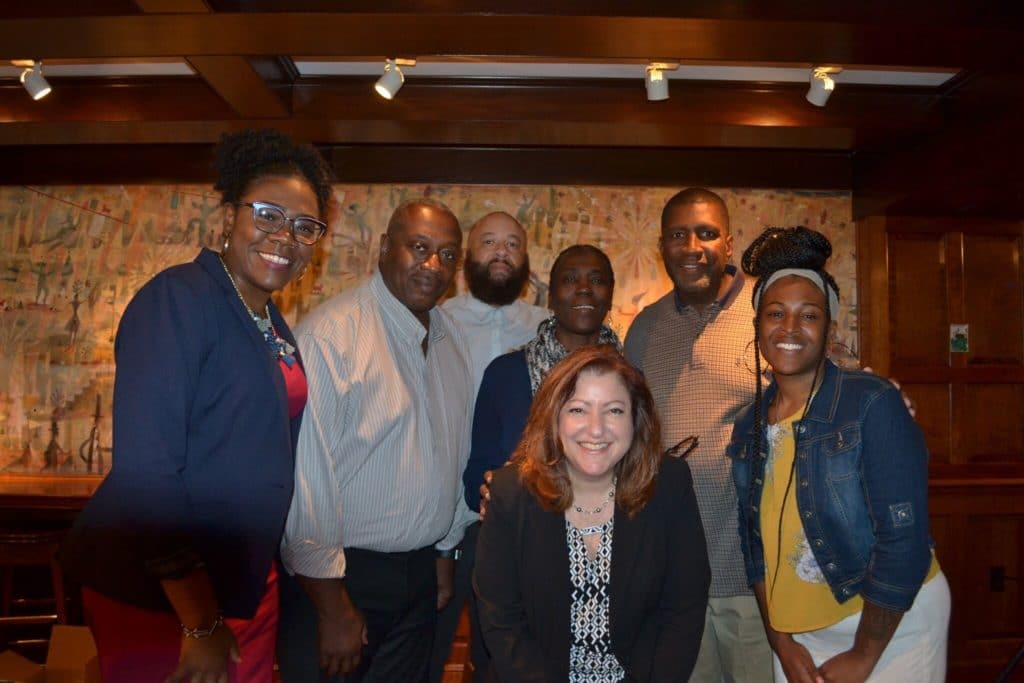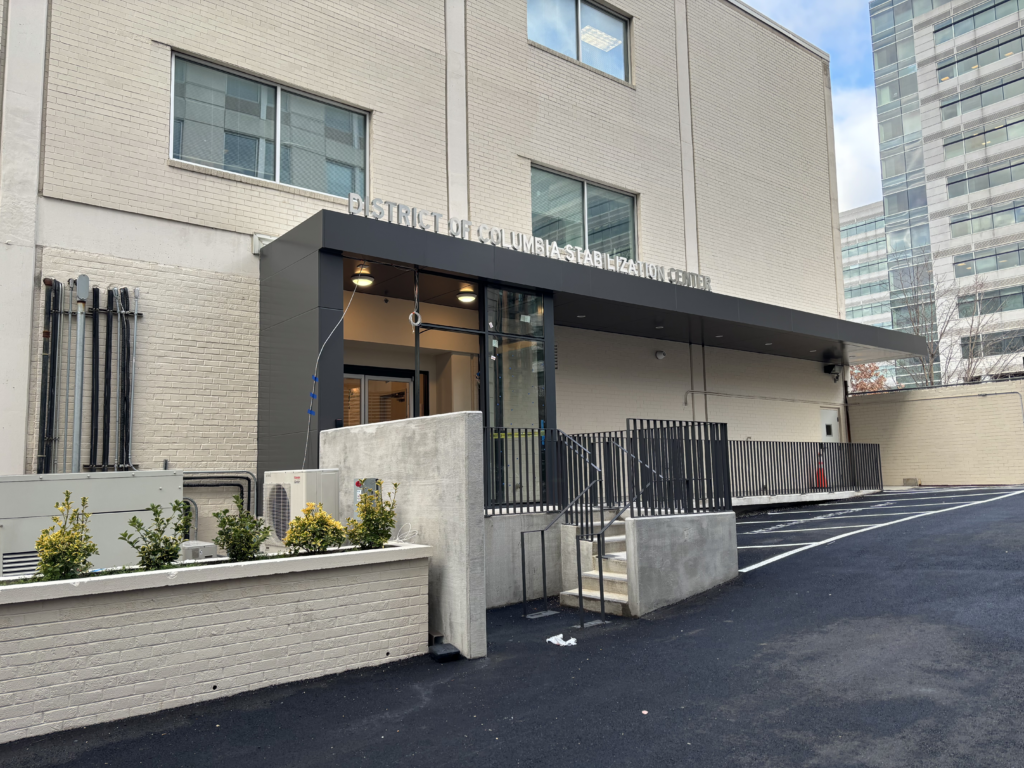At the age of 57, Calvin Watson is recovering from a long addiction to crack cocaine — the drug of choice that led him down a path that included time in jail and conversations with disappointed family members. He is a veteran living with PTSD and manic depression, both of which made the road to recovery all the more difficult to maneuver.
“Everything can fit in a crack pipe” is a phrase Watson often uses when describing how far he’s come since that period of his life. He does so to remind himself and others of the perseverance it requires to ensure those days remain behind him. His shoes, his clothes — everything he owns could be gone tomorrow if he were to allow himself to slip back into the state of being that once ruled his life.
Like more than 20 million Americans, Watson is “in recovery.” He says he is still as sick as he was when he first began his journey, but is nonetheless elated with the progress he’s made. Today, his life involves routine treatment of his mental health and the maintenance of absolute sobriety from cocaine.
It also involves the D.C. Department of Behavioral Health’s Peer Specialist Certification Program, a six-week training course that enables people who are going through recovery from mental health or substance abuse issues to become certified coaches so they can assist others in recovery and wellness. Although the program is free of charge, related costs can stunt a person’s progress or prevent them from even getting started. A new scholarship program, however, is helping Watson and four others to achieve their goals and establish a new career.
Created last year, the Woodley House-Mary Margaret Valenti Scholarship provides its recipients with financial assistance for everyday expenses such as transportation to classes or internships, professional clothing, a cellphone or computer, further education, and food.
“The people taking [the course] lots of times have other things that they need in order to shine and be able to take the course,” said Linda Meixner, Development Director for D.C.-based nonprofit Woodley House. “They’re coming out of a lot of different things and may not have a lot of money.”
The scholarship is named in honor of Mary Margaret Valenti, former personal secretary to President Lyndon B. Johnson and a longtime supporter of Woodley House, which has offered housing and mental health services in the District since 1958. Valenti frequently donated to the organization, helped establish signature events such as an annual movie benefit, and served as an adviser and a board member for many years. When Valenti died in September at the age of 85, her family requested that, in lieu of flowers, donations be sent to Woodley House in memory of her work.
Instead of using the contributions for general expenses, Woodley House opted to establish the new scholarship in partnership with the D.C. Department of Behavioral Health. Five recipients were recently selected from 14 eligible applicants. To qualify, they had to be enrolled in or have completed the certification program.
On May 22, Woodley House presented the awards to Watson and the other four awardees — Selina Mathis, Deborah Perkins, Charles Morris, and David Frye — during a breakfast ceremony at The Hamilton restaurant in Northwest D.C. The scholarship will support all five of them as they complete the certification program or pursue internships and jobs to put their credentials to use.
“It’s one thing for me to be able to speak about life experiences,” said Frye, 43, who is also a military veteran recovering from addiction and looking to help others. “With this scholarship, it’ll really help me out with being able to get some clothes and dress appropriate — to show the clients we’re going to be working with that this is part of it, too. Not only getting healthy mentally or spiritually, but also looking clean, looking the part.”
When Frye started getting help for his disorder, he found it challenging to open up to psychiatrists and doctors. As someone struggling with an addiction, Frye said, having to sit across from someone dressed in a suit initially caused him some discomfort, even when he knew that person was there to help. At the time, Frye cared more about feeding his addiction than about his appearance or hygiene, he said.
“I didn’t realize how bad I was looking,” Frye said. “I didn’t even look in the mirror a lot. It was more so, ‘Okay, I’m going to wear this mask and go out in public and do what I have to do.’”
Frye credits his family and friends for being truthful with him during this period. Since making the decision to move on from living that way, his situation has changed. Channeling the military’s emphasis on organization, he said he now strives to keep his home and himself in immaculate condition. With the scholarship, he plans on improving upon his appearance even more in order to show clients the value of cleanliness and confidence as they pursue recovery.
“I feel like the peer support specialist is the bridge that comes before the doctor,” he said. “We can influence them to open up, and that’s why I’m grateful for this scholarship.”
For Perkins, 53, it was a lack of love throughout the earlier stages of her life that led her toward addiction. As she began recovery, she developed a passion for helping others who were going through the very things she was still healing from.
Perkins experienced issues with drugs, depression and domestic abuse from a very young age and said she had felt broken since the age of 18. Without an outlet to properly engage her woes or emotions, she carried a lot of the pain within her.
Knowing what it was like to feel “stuck and lost,” Perkins said she’s confident she can help others find their way out of that state. “I can do it without judgment,” she said. “I can do it with the compassion and empathy that is needed for a person that’s stuck.”
The approximately 60 friends, colleagues, and officials who came to the scholarship breakfast to show their support reassured her that trying to become a peer support specialist was the right thing to do.
“To see that so many people care,” Perkins said. “That blew my mind.”
At the awards breakfast, D.C. Department of Health Director LaQuandra Nesbitt said the scholarship recipients ought to feel proud that their work and expertise will enrich the city’s behavioral health services. The position of certified peer specialist, she said, is “a model for personal recovery and performs a wide range of tasks to assist individuals to regain control over their lives and their own recovery process.”
As Street Sense Media previously reported, the Department of Behavioral Health’s Peer Specialist Certification Program has certified more than 200 people since its 2004 launch. Service providers often hire program participants upon completion of their internships. As part of the certification process, participants — who must have been in recovery for at least two years — have to complete an “80 hour, non-paid field practicum with a District community based behavioral health provider,” according to the DBH website. The professional certification is not recognized nationally, but similar professions and training programs exist in most states. A spokesperson for the Department of Behavioral Health did not respond to requests for further information.
After hearing the personal stories shared by the scholarship recipients, John Valenti — Mary Margaret’s son — told attendees at the breakfast that he hopes to see the program continue and expand. Valenti, who recently joined the board of Woodley House, said the organization that was such a key part of his mother’s life remains important to his family.
“What struck me was just the compassion and empathy that these people have, and how they want to turn that hard-fought knowledge into their life’s work,” Valenti said. “I would hope that Woodley House can grow in such a way that we can expand that award list by order of magnitude. Because it’s hard to pick only five winners.”
This article was co-published with TheDCLine.org.








